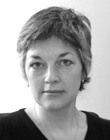 When Rhiannon Wood began in PricewaterhouseCoopers’ audit department as a graduate in 2004, there was no way for her to know that she’d be part of the world’s largest professional services firm’s most pivotal global program. Though she’s spent the last six years in the firm’s M&A tax team working with a variety of private equity houses and corporations on international transactions, it wasn’t until this year that she was asked to join PricewaterhouseCoopers’ Genesis Park program, designated for the firm’s top five percent of senior performers.
When Rhiannon Wood began in PricewaterhouseCoopers’ audit department as a graduate in 2004, there was no way for her to know that she’d be part of the world’s largest professional services firm’s most pivotal global program. Though she’s spent the last six years in the firm’s M&A tax team working with a variety of private equity houses and corporations on international transactions, it wasn’t until this year that she was asked to join PricewaterhouseCoopers’ Genesis Park program, designated for the firm’s top five percent of senior performers.
“I’d say it’s the biggest thing that’s ever happened in my career,” Wood said. “It’s a 12-month program that enables us to spend six-weeks working on personal development and strategic projects for our global board. It really feels like being a part of change for our business in the UK and globally.”
Wood’s six-weeks were up in September and she says the most important takeaway was the focus the program had on authenticity.
“There are a lot of discussions happening about what it means to be authentic or how to be an authentic leader, but what does that really mean? Oftentimes it’s just talking in concepts,” Wood said. “In the program, we spent a lot time focusing on the question of what is authenticity. We discussed how knowing your own values is central to the idea and how we can spot values in others and perhaps most importantly, how to live by our own values on a personal and professional level in order to be a more authentic leader.”
Now that she’s completed her time in the program, Wood says that the most exciting thing she’s working on is helping the firm invest in the future and the “next generation of leadership.”
“PwC is trying to be at the forefront of the industry when it comes to leadership, talent development, and diversity. It’s an exciting time to be with the firm. So many people are receptive to these groundbreaking ideas,” Wood said.
Don’t Let Your Plans Get In The Way
As a senior manager reflecting back on her first years in the industry, Wood says she wishes that she would have understood earlier that there is no one way of doing things. Ambition, she says, is a good thing, but becoming too fixated on your plan rather than on the journey can prove to be problematic.
“You can let your plans get in the way of unexpected opportunities that come across your path,” Wood said. “You need to recognize things as opportunities, rather than diversions. In the end, you’ll regret what you didn’t take, not what you did.”
Embracing Strong Personalities
Before entering M&A, Wood also says it’s important to understand that it’s a field inhabited by strong personalities and strong opinions, both of which require working with and navigating around.
“The most overlooked portion of this job is the people management piece,” Wood said. “There are a lot of ideas as to what an ideal transaction should look like versus what it actually looks like. You have to get stakeholders on board with everything you do and sometimes that means working with 20 stakeholders with very strong personalities and different agendas. The end goal is the same for everyone, but it makes getting a transaction done incredibly tricky. It’s just a matter of getting where we all want to be.”








